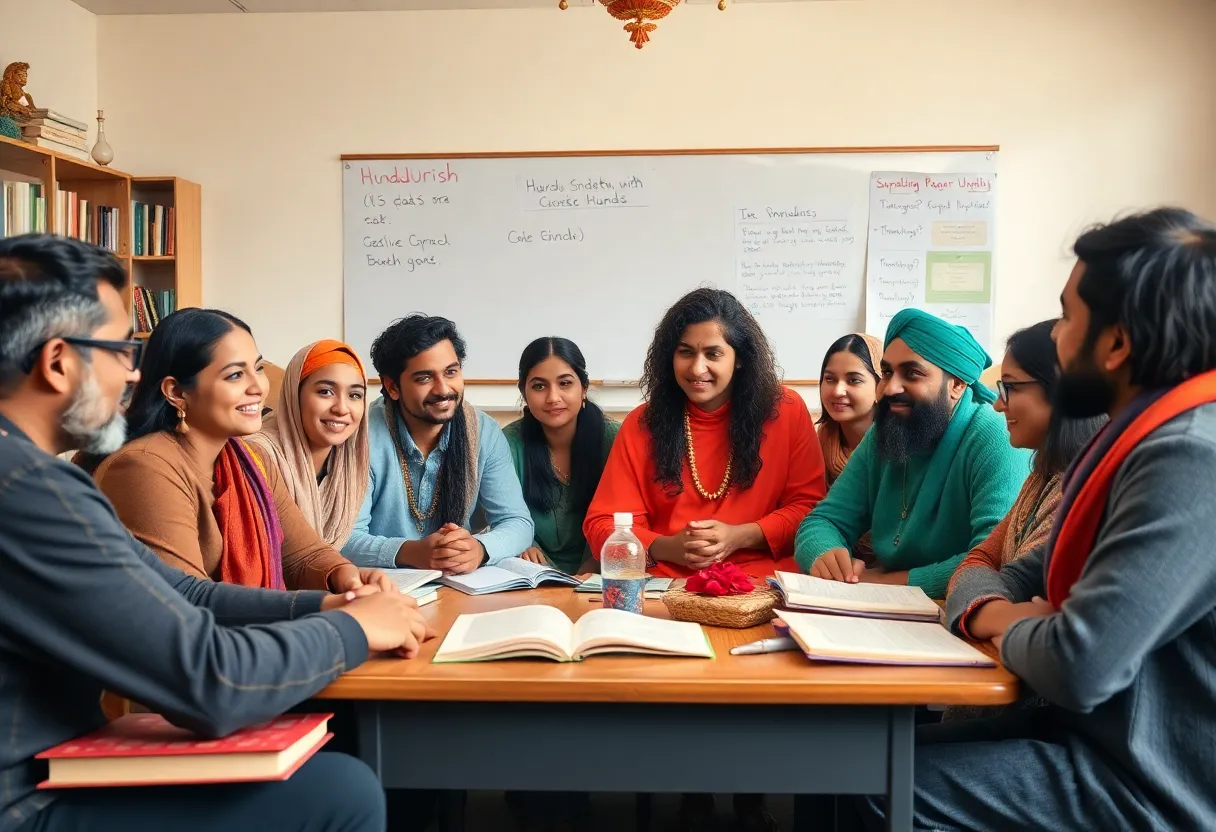News Summary
The University of Houston is facing controversy over its ‘Lived Hindu Religion’ course, accused of being ‘Hinduphobic’ by a student. The course aims to explore diverse Hindu practices through a descriptive anthropology lens. While the university defends academic freedom, concerns over cultural representation and the portrayal of Hinduism persist, highlighting a complex dialogue around education and sensitivity.
University of Houston Faces Controversy Over ‘Lived Hindu Religion’ Course
In the vibrant city of Houston, a buzz of controversy has emerged from the University of Houston over a course titled “Lived Hindu Religion.” This debate has been fueled by a student, Vasant Bhatt, who has gone public with his accusations of the course being “Hinduphobic.” According to Bhatt, the course allegedly paints a distorted picture of India’s rich political landscape.
Some Definite Discontent
At the heart of this uproar is Professor Aaron Michael Ullrey, who teaches the course. In response to Bhatt’s concerns, the university is standing its ground, emphasizing its commitment to academic freedom. University leaders have stressed the importance of creating an environment where all perspectives can be examined without fear or bias. They believe that this course, designed to explore the many intricacies of Hindu religious traditions, aligns perfectly with such values.
Understanding the Course Content
Professor Ullrey has been quite vocal about the course’s content and its teaching methods. He explains that the course is designed with a focus on descriptive anthropology rather than prescriptive theology. This means that instead of simply stating what Hinduism is supposed to be, the course dives into the historical and contemporary practices of various Hindu communities. Ullrey’s objective is to highlight the complexity and historical depth inherent in Hindu traditions, asserting that Hinduism shouldn’t be categorized as a single entity.
Through this lens, students also learn about the analytical terms such as “fundamentalism,” which are utilized in an objective way, akin to methods used in many religious studies around the globe. However, the university has acknowledged that some of these academic terms might be misconstrued when discussed outside the classroom, leading to issues in public understanding.
The University’s Approach
Following Bhatt’s complaints, the university took the initiative to review the situation thoroughly. The dean of the College of Liberal Arts and Social Sciences, along with the director of religious studies, engaged in discussions with Ullrey to address the raised concerns. During this examination, Ullrey firmly defended his teaching practices, refuting claims suggesting he categorized Hinduism as a “colonial construct” or a “tool of oppression.” He indicated that such interpretations were taken out of context, and he believes this adds to the broader conversation about the misrepresentation of Hinduism in academic circles.
The course covers numerous aspects of Hinduism—around 25 different dimensions—making it clear that Ullrey does not subscribe to a singular definition of the religion. His syllabus stresses that Hinduism encompasses a wide array of spiritual paths, philosophies, rituals, and social structures. This multifaceted approach aims to debunk any simplistic definitions and acknowledge the diverse practices within Hinduism.
Concerns from the Community
Bhatt’s concerns particularly referenced his belief that the term “Hindu” as we know it today is a relatively new concept that is not documented in ancient scriptures. This observation has raised eyebrows among the Indian American community, who have voiced worries about the negative portrayals of Hinduism often seen in academic contexts. It’s a significant issue for many, making the discussion surrounding this course even more pertinent as it touches upon cultural sensitivity and representation.
In summary, as the University of Houston navigates through this tricky controversy, it remains committed to upholding its principles of academic inquiry and exploration. The university underscores the importance of discussing challenging topics, which can lead to deeper understanding and insight, despite the discord that may arise in the process. The debate serves as a reminder that the intersection of education and cultural representation will continually be a topic of discussion in academic environments, especially in a diverse country like the United States.
Deeper Dive: News & Info About This Topic
HERE Resources
Additional Resources
- Financial Express
- Wikipedia: Hinduism
- India West
- Google Search: Hinduism course controversy University of Houston
- Hindustan Times
- Google Scholar: lived hindu religion
- Times of India
- Encyclopedia Britannica: Hinduism
- Moneycontrol
- Google News: University of Houston Hinduism course







